Inauguration

THE DAY BEFORE President Obama's second inauguration (campaign code name: "Neener, neener, neener!"), Republican Sen. Mitch McConnell sent an email to constituents with a message somewhat lacking in a spirit of new beginnings: "The gun-grabbers in the Senate are about to launch an all-out assault on the Second Amendment. They're coming for your guns."
This is disturbing. I don't have any guns, but I'm looking for places to hide them. And without guns, how will I protect my family from the coming assault? Can I hold off federal agents by flinging small appliances at them? Those I've got. In fact, I just got a new hand mixer. It's black and sleek, like the helicopters that will soon be circling over our homes. (Helicopter tip: Make sure the rotor blades have completely stopped before licking off the icing.)
Under Obama's new proposals, I'll probably have to register my appliances, or at least submit to a background check before I buy another one. Although I've heard you can avoid that if you get them at private appliance shows.
This latest attention to gun control prompted National Rifle Association leader Wayne LaPierre to take the stage and, looking directly into the eyes of the American people, vehemently deny that he is French. Additionally, he helpfully pointed out that "the only thing that stops a bad guy with a gun is a good guy with a gun." Or was it the other way around? To be honest I'm not sure what he said, because I got distracted by the wild look in his eyes, and the bits of saliva that gather in the corners of his mouth whenever he talks about guns. This guy really likes guns.
What I would ask Mr. "LaPierre" [giggle]—while keeping both hands out where he could see them—is this: How do you stop a good guy with a gun who's having a bad day? Or what if he's really depressed or angry at his boss for not allowing him to wear camouflage clothing to staff meetings?
WHO SHOULD BE able to pray at a presidential inauguration and what should that prayer be?
On Jan. 20, 1937, Monsignor John A. Ryan delivered the first inaugural benediction at the inauguration of Franklin D. Roosevelt with these words: "Almighty God, ruler of nations, we beseech thee to bless the people of the United States. Keep them at peace among themselves and in concord with all other peoples. Cause justice and charity to flourish among them, that they may all be enabled to live as persons created in thine own image and likeness."
Since this first benediction, ministers, priests, bishops, cardinals, and rabbis have offered prayers at the past 18 presidential inaugurations. Almost 76 years to the day since Father Ryan's benediction, Myrlie Evers-Williams became the first layperson to deliver the inaugural invocation, and Rev. Luis León, an Episcopal priest, offered his prayer for President Obama and our nation: "... with the blessing of your blessing, we will see that we are created in your image, whether brown, black, or white, male or female, first-generation immigrant American or daughter of the American Revolution, gay or straight, rich or poor ... with your blessing we will recognize the abundance of the gifts of this good land with which you have endowed this nation."
You may remember that the selection of Rev. León, like most decisions made in Washington today, did not come without controversy and an onslaught of protests. León, who ministers at St. John's Church near the White House and is known for welcoming openly gay Christians, replaced the administration's first choice, Rev. Louie Giglio. Giglio withdrew from the ceremony after the surfacing of his controversial sermon from 20 years ago condemning gay relationships. Giglio's stance on the issue of gay marriage is in sharp contrast to the beliefs of Rev. León, whose parish will begin to bless same-sex partnerships and ordain transgender priests this summer.
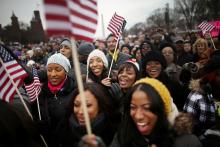
"Faith in America's Future" — that was the theme of Monday's inauguration activities.
Watching the prayers, the songs, the speeches, the crowd massed on the Washington Mall, I felt the faith. We don't have to hate each other. We can work together for a future that will be good for our country and for us as individuals. We can, as the President charged us to do, make the "values of life and liberty and the pursuit of happiness real for every American."
Inaugurations are times for setting aside differences and wildly celebrating. While Richard Blanco read his inaugural poem, even John Boehner looked teary-eyed.
The political divisions will be back in full force this week, of course. And yet we Americans are in the midst of some really big changes — changes that may make today's partisan squabbles look hopelessly antiquated in just a decade or two. Monday's events highlighted these changes.

A presidential inauguration is by tradition the grandest ritual of America’s civil religion, but President Obama took the oath of office on Monday in a ceremony that was explicit in joining theology to the nation’s destiny and setting out a biblical vision of equality that includes race, gender, class, and, most controversially, sexual orientation.
Obama’s speech, his second inaugural address, repeatedly cited civic and religious doctrines — namely the God-given equality extolled by the “founding creed” of the Declaration of Independence — to essentially reconsecrate the country to the common good and to the dignity of each person.
It was a faith-infused event that recognized both the original sins as well as the later atonements of America’s history, especially on race, which was front and center as the nation’s first African-American president took the oath on the holiday commemorating the Rev. Martin Luther King, Jr.
And Obama and other speakers vividly traced the nation’s tortuous path from slavery to civil rights — from the Emancipation Proclamation 150 years ago to the March on Washington 50 years ago, the latter presided over by King.

Editor's Note: The following is a transcript of President Barack Obama's remarks following his swearing in during Monday's Inauguration ceremony.
THE PRESIDENT: Vice President Biden, Mr. Chief Justice, members of the United States Congress, distinguished guests, and fellow citizens:
Each time we gather to inaugurate a President we bear witness to the enduring strength of our Constitution. We affirm the promise of our democracy. We recall that what binds this nation together is not the colors of our skin or the tenets of our faith or the origins of our names. What makes us exceptional -- what makes us American -- is our allegiance to an idea articulated in a declaration made more than two centuries ago:
“We hold these truths to be self-evident, that all men are created equal; that they are endowed by their Creator with certain unalienable rights; that among these are life, liberty, and the pursuit of happiness.”
Today we continue a never-ending journey to bridge the meaning of those words with the realities of our time. For history tells us that while these truths may be self-evident, they’ve never been self-executing; that while freedom is a gift from God, it must be secured by His people here on Earth. (Applause.) The patriots of 1776 did not fight to replace the tyranny of a king with the privileges of a few or the rule of a mob. They gave to us a republic, a government of, and by, and for the people, entrusting each generation to keep safe our founding creed.
And for more than two hundred years, we have.
[continuted]
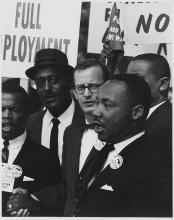
If the latest Billboard album chart is anything to go by, the answer to Victor Hugo’s question “Do you hear the people sing”? is a resounding “Yes!” as the soundtrack to the latest film adaption of his novel has hit number one. More ambiguous however, is the answer to the question: do we understand what they are singing?
Many know of Dr. Rev. Martin Luther King Jr.’s “Letter from a Birmingham Jail.” Fewer know of Dr. King’s letter from a Selma jail where he wrote, “If we are to achieve a real equality, the U.S. will have to adopt a modified form of socialism.” This week will see President Obama sworn into office by laying his hand upon the Bible of America’s greatest preacher and prophet, M.L. King. If the appropriateness of King’s radical legacy being invoked by Obama goes beyond being skin deep, might we also ask the question: do we hear and understand the song Martin King sung?
As many blogs will brim with praise for Martin Luther King, Jr., with little mention of his politics, so too are they awash with praise for the latest Les Misérables film without mention of its vision for society. They praise Hugh Jackman and Anne Hathaway’s ability to blubber while beautifully belting out ballads. They have shown the Christian virtue of mercy to Russel Crowe’s singing (at least more mercy than the infamous critique of his musical ability by Australian punk band Frenzal Rhomb). All this before moving on to talk of Les Misérables’ less-than-subtle Christian themes.
As CNN reported, since the micro-targeted marketing success of movies like The Passion of the Christ, film studios have been courting Christians to exchange their pews for popcorn and Gospel songs for cinema going. Again, this time with Les Misérables, the faithful have responded to the box office like it was an altar call offered with Dr. King’s eloquence.
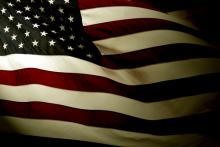
“Everyone brings out the choice wine first and then the cheaper wine after the guests have had too much to drink; but you have saved the best till now.” John 2:10
I recently saw the very fine understated film, Promised Land, starring Matt Damon, which peels back the glamour and allure of large amounts of money from huge energy corporations drilling for natural gas, engaging in a practice called fracking. Fracking offered the promise of making individuals and families rich, maybe very rich millionaires, but there was also the possibility of releasing chemicals into the soil and groundwater hastening the death of these struggling communities.
No quick, easy answers are offered in this film, but we are reminded of the great promise that this land called America holds for all 300 million plus of us. We are reminded of promises unfulfilled, dashed hopes, and shattered dreams.
Reading this second chapter of John’s Gospel, when Jesus was at a wedding feast in Cana of Galilee, we see here also great promise, but promises unfulfilled, dashed hopes, and shattered dreams. A young couple at a high moment starting life out together with great joy, but the joy becomes elusive as a problem soon develops. There is a shortage, a running out of wine. Not only was that a social embarrassment; it was a symbol and sign of what was yet to come. For a wedding to run out of wine was an omen that there was little chance of this particular marriage reaching its full potential. Promises barely made, but already promises unfulfilled, dashed hopes, and shattered dreams.
As we stand this week on the cliff of a critical moment in the life of our nation — Martin Luther King, Jr. Day and the second inauguration of Barack Hussein Obama, the first person of African descent, as the 44th President of this country — some already view that promises are broken and unfulfilled. There are dashed hopes and shattered dreams.
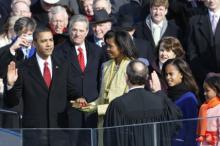
WASHINGTON — President Obama will take the oath of office with two Bibles that once belonged to a pair of civil rights icons: Abraham Lincoln and Martin Luther King Jr.
King’s “traveling Bible” was provided by his family, while the Lincoln Bible is from the Library of Congress and was used during the 16th president’s inauguration on March 4, 1861; Obama also used the Lincoln Bible during his first inauguration in 2009.
The Lincoln and King good books will be used during this year’s public swearing-in ceremony on Jan. 21, the Presidential Inaugural Committee announced. King’s Bible will be stacked atop Lincoln’s.
“President Obama is honored to use these Bibles at the swearing-in ceremonies,” said Steve Kerrigan, president and CEO of the inaugural committee. “These Bibles are rich in tradition and reflect the great American story that binds our nation.”
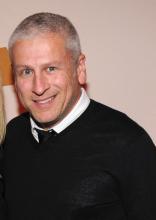
The evangelical pastor that President Obama picked to deliver the benediction at his inauguration ceremonies withdrew from the high-profile assignment on Thursday following a furor over a sermon from the mid-1990s in which he denounced the gay rights movement and advocated efforts to turn gays straight.
In a statement, the Rev. Louie Giglio of Atlanta, founder of the Passion Conferences for college-age Christians, did not directly renounce his remarks on gays but indicated that fighting gay rights is not one of his “priorities.”
Still, because of the controversy – which erupted on Wednesday after the liberal group Think Progress posted audio of the sermon – Giglio said that “it is likely that my participation, and the prayer I would offer, will be dwarfed by those seeking to make their agenda the focal point of the inauguration.”
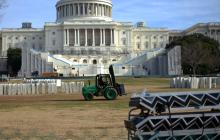
It is an odd juxtaposition, December 21, 2012 and January 21, 2013. The former date representing the “so-called” Mayan apocalypse where the usual suspects prepared for the end of the world – many of whom were Christians awaiting the second coming of Christ – and the latter date, which is the day President Barack Obama will be inaugurated for his second term.
In my estimation, this odd 21st-century connection reflects the event known as the baptism of Jesus as described in Luke 3:15-17 and 21-22. Initially we see that there is an expectation elicited by the preaching prowess of John the Baptist. The unnamed “men” wonder in their hearts if “whether perhaps he was the Christ” (Luke 3:15 RSV). John, then goes on to describe what he understands to be Christ-like qualities when he proclaims, “[One] who is mightier than I is coming, the thong of whose sandals I am unworthy to untie” (Luke 3:16).
"Let's listen in now to the Marine Corps Band," the CNN commentator says. The camera pans across the Washington Mall. People, as far as the eye can see, waiting for the historic moment, the inauguration of the 44th President of the United States of America, the first African American to ever hold this high office.